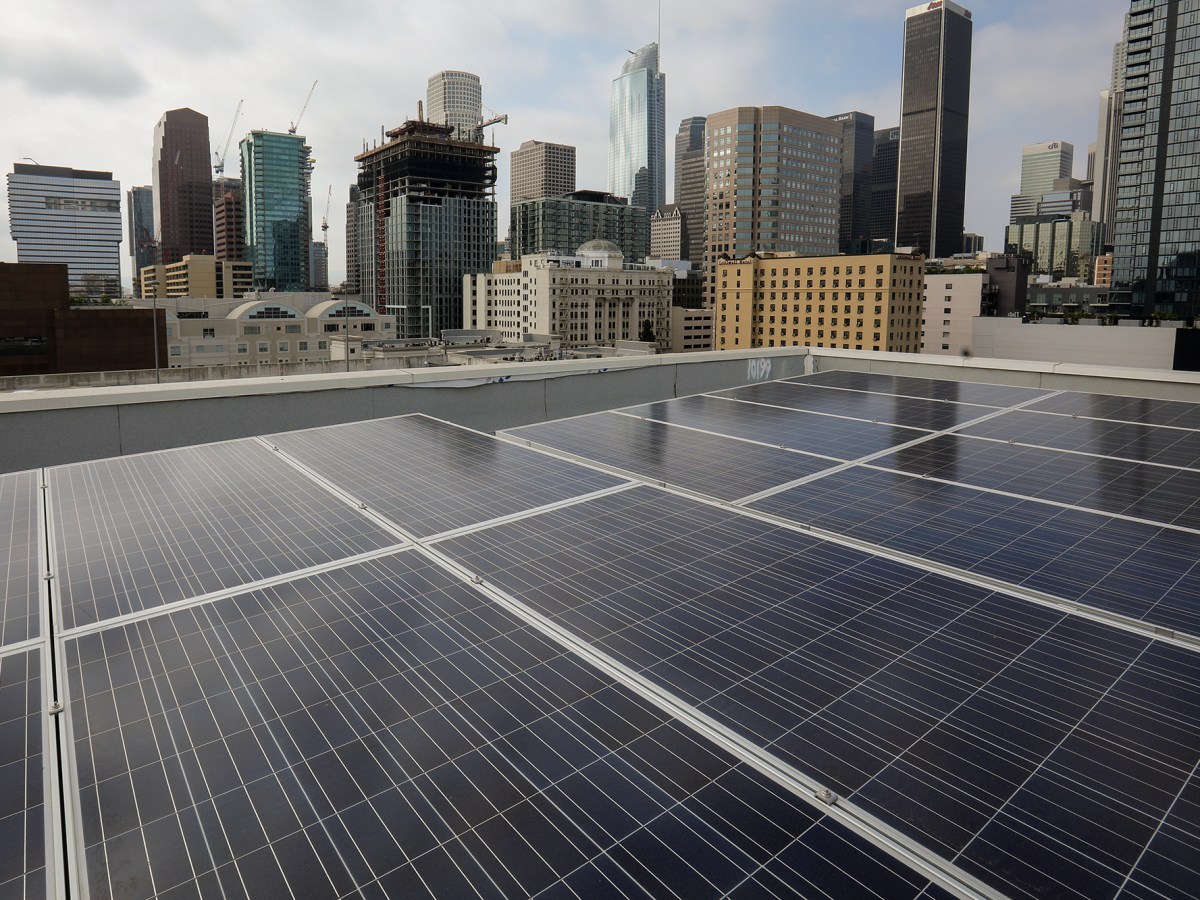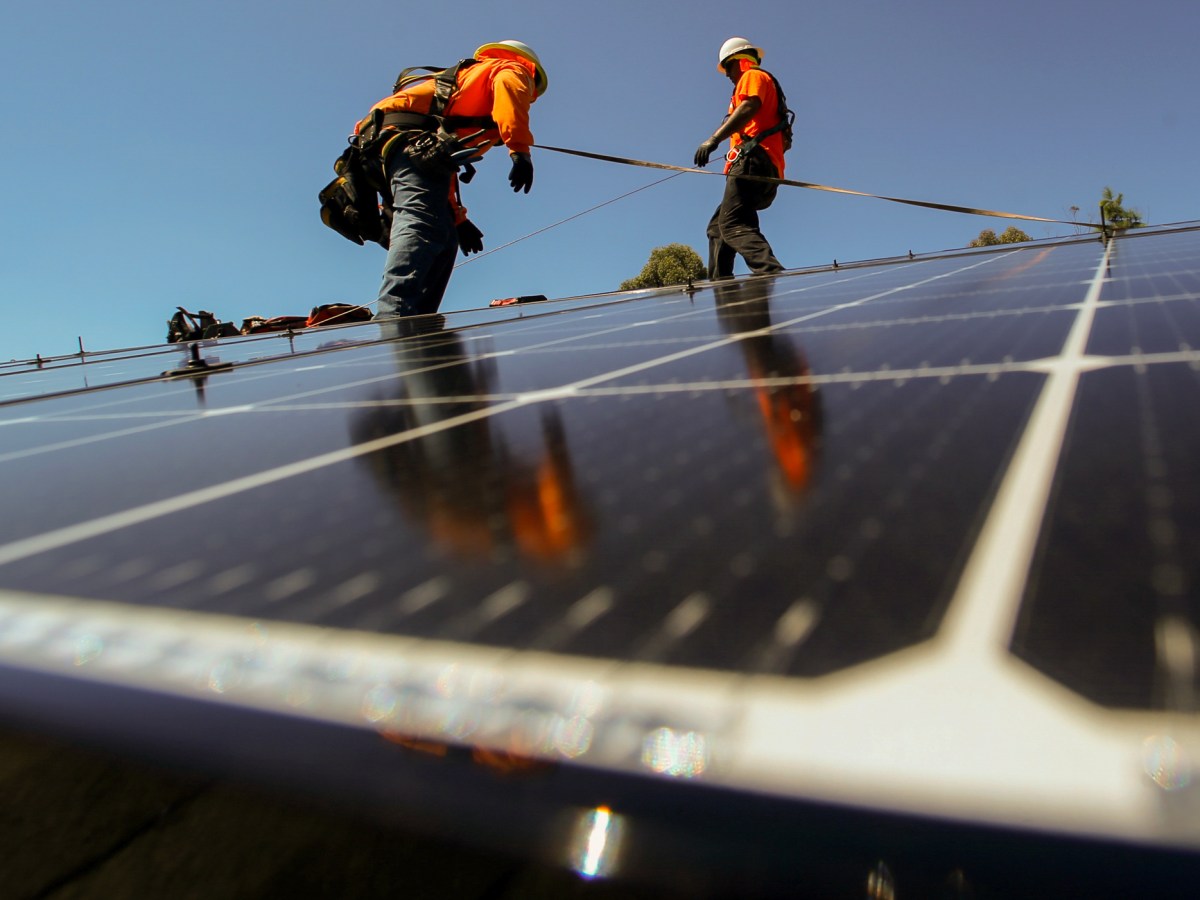In summary
These community projects can give low-income renters and homeowners a chance to turn to solar energy, but the PUC’s action is unlikely to give them the opportunity.
California’s utility regulator today adopted new rules for community solar projects, despite warnings from clean energy advocates that the move would actually undermine efforts to expand solar energy options for low-income customers.
The state’s largest utility companies have advocated for the new rules.
Community solar projects are typically small-scale, local solar panels that can be used by renters and homeowners who cannot afford to install their own rooftop solar panels. They are part of the State’s overall strategy aimed at eventually operating the electricity network entirely using renewable energy.
California Public Utilities Commission’s 3-1 decision preserves and expands programs that will allow any ratepayer to subscribe to a project pool and receive a 20% rate reduction, Commission Chairwoman said , Alice Reynolds. But it also reduces future compensation for solar providers and residents.
The commission calculates the benefits derived from small-scale distributed solar energy projects, which provide a “service” by sending clean energy to the power grid and reducing transmission costs by serving neighboring communities. Solar developers are paid for the value of the benefits provided by their project.
The formula adopted today essentially reduces the value of small-scale distributed renewable energy in the future, providing less incentive to build new community solar projects.
In the short term, grants and incentives that help promote community solar installation will remain in place, funded by a recent $250 million grant California received through the federal Solar For All program.
One concern among solar advocates is what will happen once that funding runs out and the financial incentive for solar development evaporates.
“The foundation of a sustainable program should not be built on one-time dollars,” said Derek Chernow, western regional director of the Community Solar Access Coalition.
While California has been a leader in promoting solar energy and a carbon-free power grid, the state’s efforts to encourage small solar projects have been lackluster. One example of a missed opportunity cited by critics is failing to require community solar projects to have battery storage systems that would allow electricity to flow after sunset.
“We’re not done here today,” Reynolds said, adding that programs could be changed and improved in the future.
As many Californians’ electric bills soar, she also criticized the impact of “cost shifting,” the idea that subsidies for community solar projects are costs borne by all ratepayers. This is a fundamental fairness argument that the commission has used in other proceedings to justify subsidy reductions.
But changing or reducing subsidies and other incentives for a still-maturing industry, advocates say, will lead to fewer solar installations, denying low-income ratepayers the benefit of renewable energy. Community access solar programs are supposed to ensure that at least 51% of energy derived from projects serves disadvantaged customers.
Late last year, the commission revised incentives for owners of apartment buildings, schools and businesses that install solar panels. These regulations are part of a series of recent decisions by the commission to reduce financial incentives for rooftop solar. In late 2022, the commission reduced payments to homeowners who sell excess electricity from newly installed solar panels on single-family homes.
Advocates have lamented what they say is California’s lag in clean energy leadership and criticized Gov. Gavin Newsom, who last week delivered a keynote speech at the Vatican Summit on Clean Energy. climate, so as not to hold the powerful public services and oil companies of the State to account.
The commission’s decision on community solar was quickly added to the list of what critics see as a worrying trend of backtracking on critical renewable energy policies.
“The CPUC’s recent series of decisions threatens to undermine California’s progress on clean energy,” the Solar Energy Industries Association said in a statement. “It’s long past time for Governor Newsom and state leaders to reign in the commission before it inflicts more damage on customers and the state’s clean energy economy.”
As it had in closely watched previous decisions, the commission heard from myriad organizations, including the solar industry and environmental justice groups, advocating for programs that would expand energy access clean and would reduce electricity bills.
There was little public comment during the morning hearing, but at least two state lawmakers expressed opposition to the proposal. Assembly member Christopher Ward pointed out that the updated proposal was only released this week and called it “fatally flawed.”
Learn more about the lawmakers featured in this story.
“It doesn’t reflect the intent of the bill,” said Ward, a San Diego Democrat. commissioners, referring to legislation he authored that required the commission to review its rules. The unintended result of today’s decision, he said, would be to discourage new projects.
An aide to Sen. Josh Becker, a Menlo Park Democrat, read a letter from the lawmaker saying experts doubt the policies will expand access to clean energy.
In detailed remarks, Commissioner Darcie Houck highlighted several concerns about the decision, including her view that it did not go far enough to benefit taxpayers in low-income communities. Much of the commissioner’s dissent focused on provisions that she said will deter the adoption of solar energy and fail to enable a “just and equitable energy transition.”


Source link